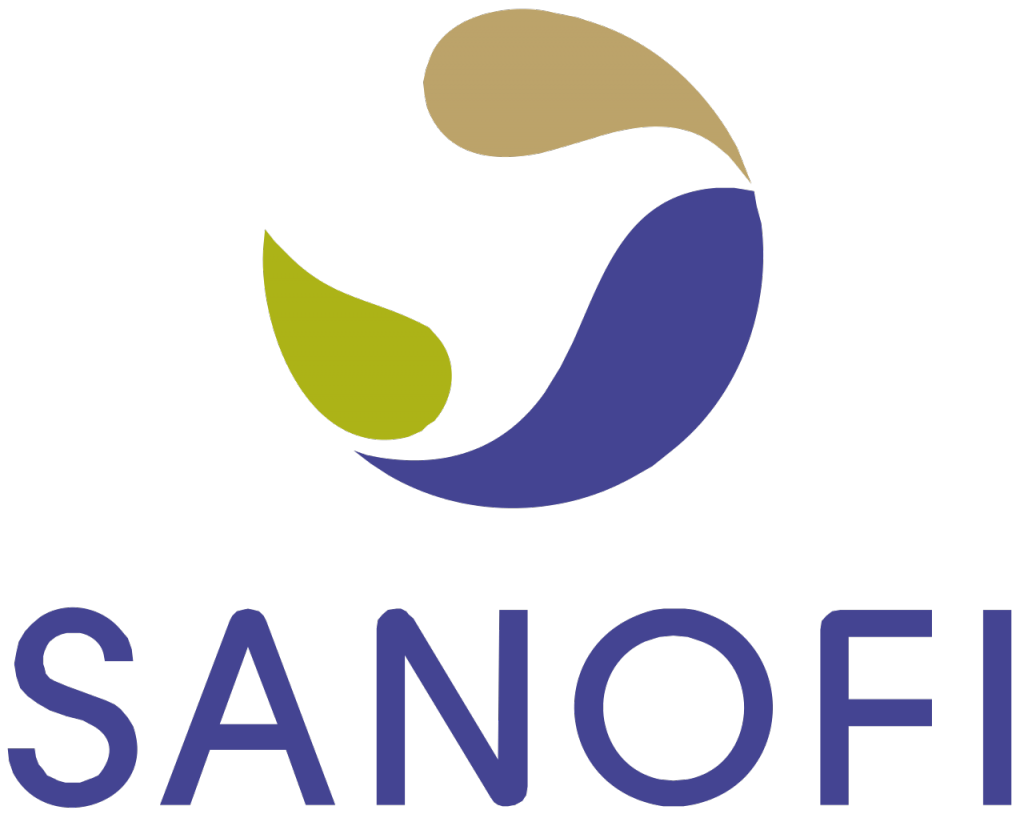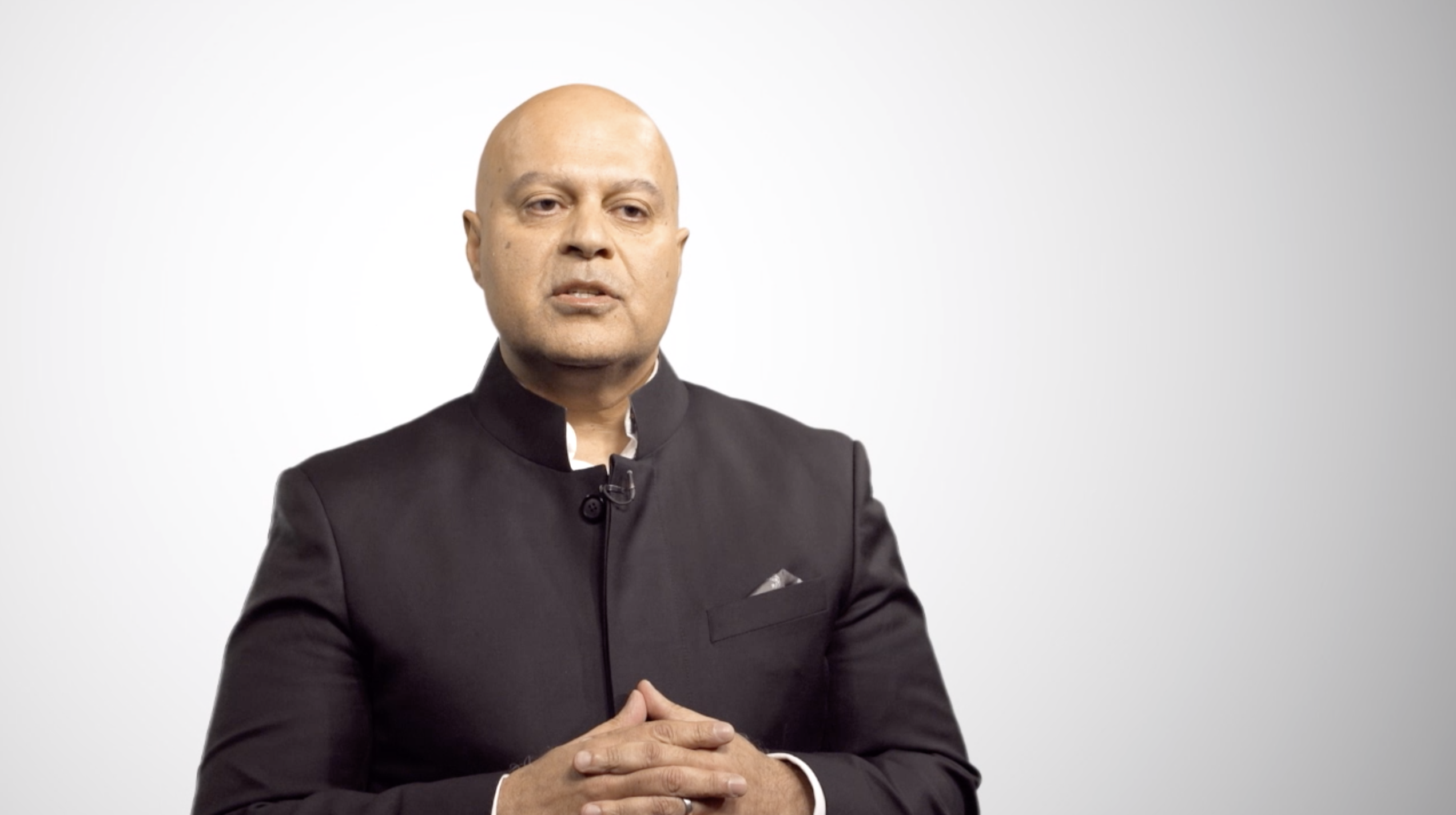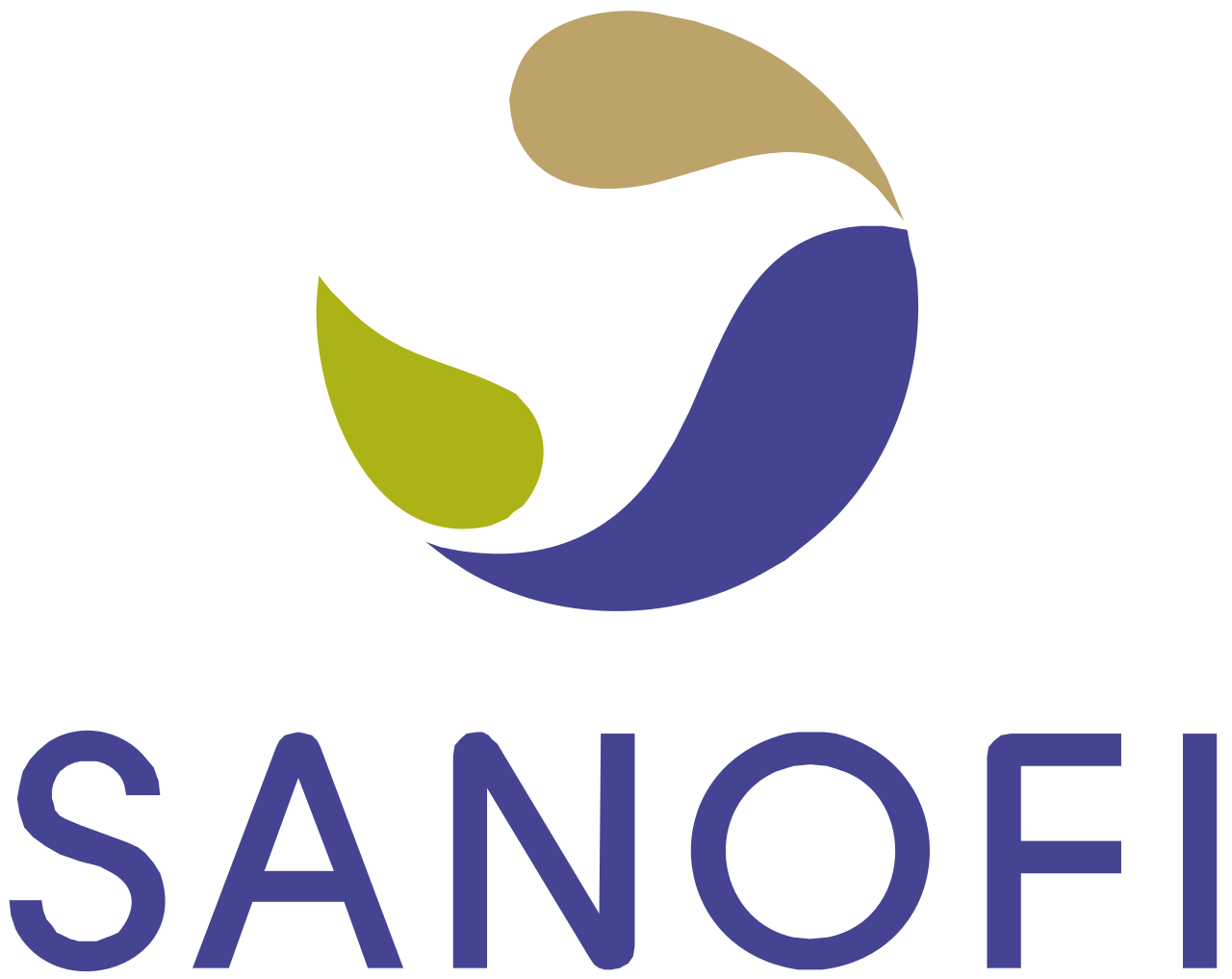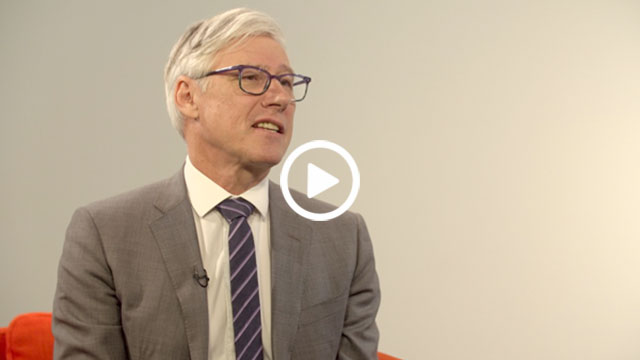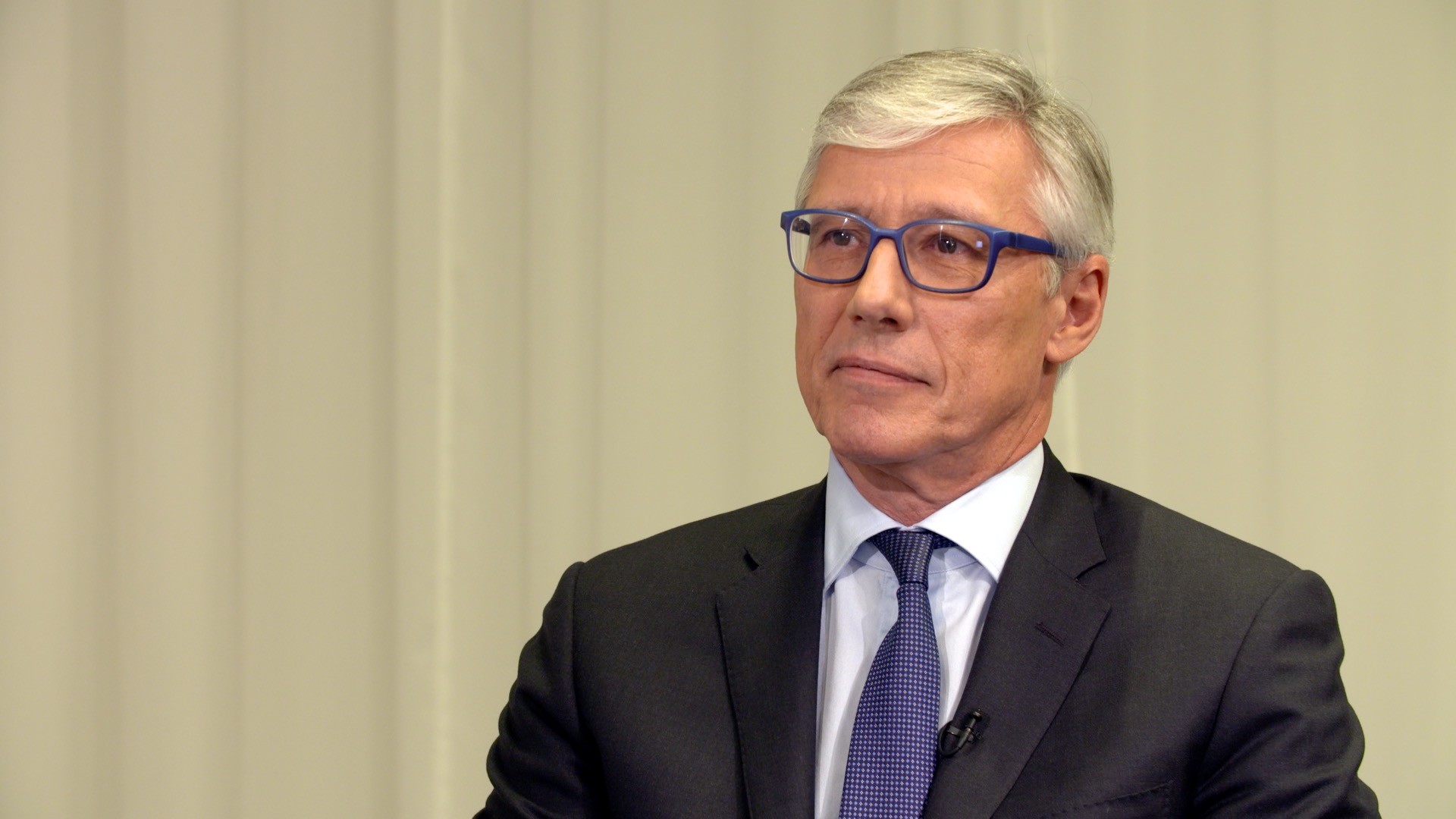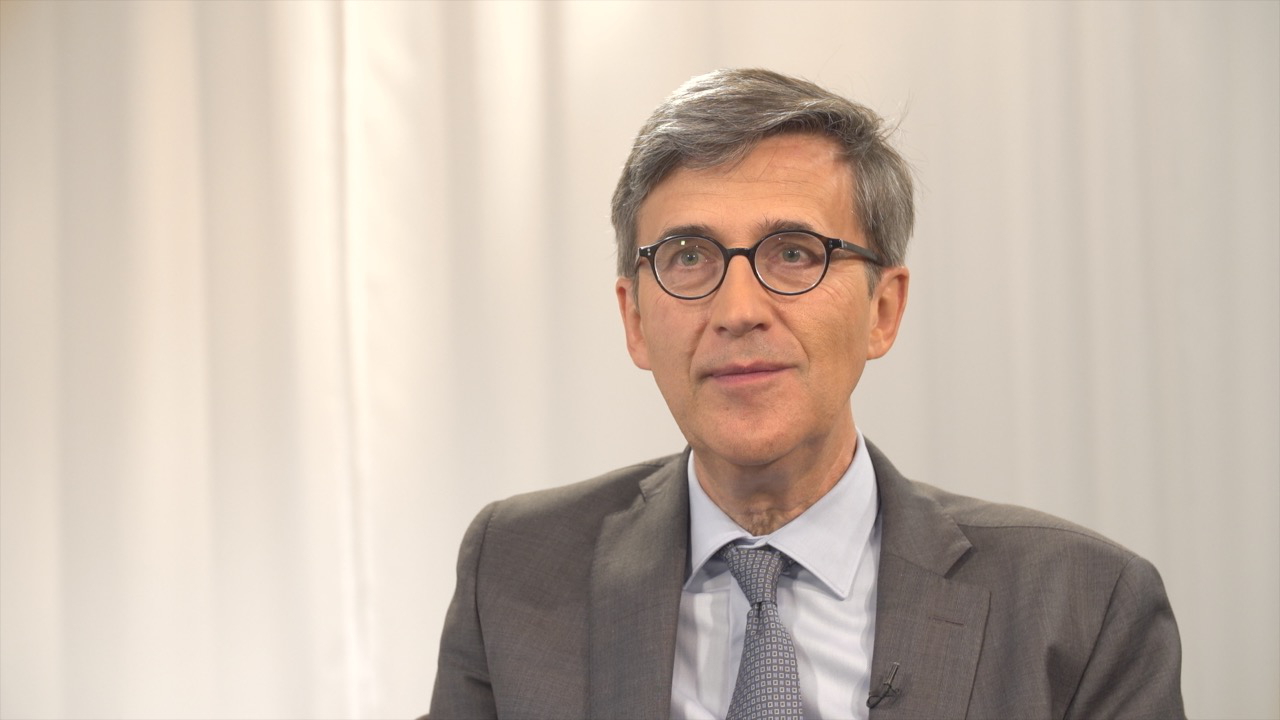EuroBusiness Media (EBM): Sanofi, a global and diversified healthcare leader reports results for the second quarter of 2013. Chris Viehbacher welcome. You are the CEO of Sanofi. What are your comments on the group's performance in the second quarter which, on the face of it, showed some disappointing numbers?
Chris Viehbacher: Well, I think there is no point sugar coating it. I think this was indeed a frustrating quarter. I say frustrating because a number of things are actually going along extremely well. I’m very happy with the performance of our diabetes franchise; the performance of Genzyme, for example, up again over 25%. A lot of our Emerging Markets had very strong performance and I think what really makes me feel satisfied about the progress of the company is that we are really starting to get a lot of good news out of our R&D portfolio. At the same time we had some businesses clearly underperforming and some setbacks in the quarter and this is of course against the backdrop of, in any case, a difficult comparator to the prior year. This is the last quarter where we are comparing to a quarter where we still - at least in part of it - had sales of Plavix®. So Plavix® weighed on the earnings per share to the tune of about 18 cents or roughly 230 million euros. And that brings us to about 795 million euros lost due to the fact that we don’t have Plavix® this year and we did last year. Of course that’s very much in line with what we said; we said at the beginning of the year that this was going to be about 800 million euros. We have seen our Animal Health business underperform, principally due to increased generic competition for our main product Frontline® and also due to weather conditions. We had a very cold, wet spring which meant that sales for flea and tick products were down. We saw an underperformance in Japan, where there has been a move by the government to increase generic utilisation and that had a negative impact on Allegra® and Myslee®, otherwise known as Stilnox® or Ambien®. And of course, we had mess to clean up in Brazil. We had trade channels with excessively high inventory levels and that meant we had to take a write-off on some of our accounts receivable, make a provision for stocks that had been returned or will be returned, and that effect had an impact of about 17 cents a share. Now, if I look at all that, it obviously doesn’t make for a pretty quarter, but I don’t think anything fundamental has changed about the business. I still believe we have a very strong, vibrant leadership position in emerging markets; our Diabetes business is doing well; we are getting some new products out; we have had some successful launches like Aubagio®, so we now need to just buckle down and get through this and we should still be able to get through the second half coming back into growth.
EBM: Following this lacklustre first half, do you think that you can return to growth in the second half of 2013? What is your Business EPS guidance today for the full year 2013?
Chris Viehbacher: As we look at it today we do think we are going to progressively return to growth in the second half of this year. Why do I say that? Well, I think there are two things that really give us the confidence in that. The first is that as we go into the third and fourth quarters we don’t any longer have the difficult comparators of the prior year. Plavix® generics arrived in the middle of May last year and generics arrived for Eloxatin® in early August. So we now enter a period where we are really more on a like-for-like basis and that leads me to the second factor, which is when you look at the underlying performance of our growth platforms in the first half, it was still at 7.7%, a little lower than 2012, but still in today’s world, 7.7% is respectable and that’s what I think will carry us through. Now, given the underperformance and given the need to clean up our situation in Brazil, we are not going to be able to compensate for all of that underperformance that occurred in the first half and therefore we are lowering our outlook for the year. We now expect a decrease in profits of between 7 and 10% on an earnings per share, constant exchange rate basis.
EBM: How does your adjusted guidance affect your policy of return to shareholders?
Chris Viehbacher: Our policy continues to be to look for ways to return to shareholders either through buy-backs or through dividends. The dividend has been a very robust part of the value proposition of our shares and continues to be. We established a target for the payment of the dividend for 2013 next year of 50% of business earnings per share. We are still on track to do that. We also have always said that we are going to be opportunistic on buy-backs and in fact we have been, in the first half of this year, we bought back about 890 million euros worth of shares. That’s more than we bought back in all of 2012. Our view is that we want to keep a net debt minimum of about 10 billion euros, that’s about where we are at the end of June and of course we continue to look at that through the years. But really the results of this year don’t affect the longer term outlook of the company and therefore not our policy on shareholder returns either.
EBM: What is your confidence in your Diabetes portfolio, based on the latest results for your new glargine formulation, U300, and the recent setbacks of your competition?
Chris Viehbacher: When we first look at what are the current results, I think we are very satisfied. We have had the tenth consecutive quarter of double-digit growth. Our Diabetes franchise is up over 16% and Lantus® is up over 17%. Conversion to SoloSTAR® is now above 56% in the US, so the underlying performance is very strong and we expect that to continue and especially the delay of degludec will mean that is even more likely to continue. Apidra® up 25% and this is a good bounce back from some of our supply issues. Now we’ve got the next generation of products coming along. We are seeing this with the launch of Lyxumia®. Germany is the first launch country; after 18 weeks we have roughly 10% market share which is a very satisfactory performance. We have also seen the launch in the United Kingdom and we will see progressive launches throughout Europe. Interestingly, we have had the launch in Japan, very unusual to see the launch of a product in Japan before the United States, so that’s an opportunity to really get Lyxumia® rolled out globally. And of course the file is with the FDA and we have an action date in the fourth quarter. So Lyxumia® is here and now and it’s rolling out. And then the next generation insulin product, our new glargine formulation is very exciting. It has a much flatter profile, true 24-hour coverage, and so for us this will be the next generation of growth in continuing our franchise, really starting from 2015 onwards. So we really are looking forward to a next generation of growth with U300.
EBM: Growth of your vaccines business was somewhat held back by production issues. How is this resolving?
Chris Viehbacher: First of all, any time we talk about vaccines, quarter on quarter comparisons are a little tricky because there’s often phasing issues. In the first half of the year you have the sales of flu to the Southern Hemisphere and in the second half of the year sales of flu to the Northern Hemisphere. What I think is important is to look at the first half where the sales grew at 7%. In this particular year we had more sales of flu in the first quarter than the second quarter, which was the reverse last year, so the quarter on quarter performance isn’t really meaningful. Menactra® was also affected by phasing of some government orders. Now, we are facing some supply constraints, as we've said in previous quarters, really on Pentacel®. We expect to progressively return to full supply over the second half of this year. In the meantime, sales of Pentaxim® in emerging markets in particular have been able to compensate for the lower sales of Pentacel®.
EBM: Can you confirm that Genzyme is gaining market share against the competition in Rare Diseases? Are you satisfied by your progress in the Multiple Sclerosis space?
Chris Viehbacher: Genzyme is performing extremely well. It’s very gratifying to see that after last year, where we were able to re-establish full production, now you really see Genzyme hitting its stride and you’re really seeing a strong performance even against the competition in the marketplace. Rare Diseases were up over 17%, Cerezyme® up 18%, Fabrazyme® up 28%, Myozyme® up 15%, so these are very strong performances which really says to me that the Genzyme brand, the Genzyme patient orientation is really helping it and hasn’t been affected by the former supply issues. So that’s an extremely strong performance and the other part I’m very satisfied about is seeing the launch of products now in Multiple Sclerosis. When we created Genzyme, I wanted to put MS in with Genzyme because of that very strong patient orientation and MS is one of those disease areas where you really have to think about patient needs, and Genzyme is very strong on that. What you see actually is, I think, a real revolution in the MS market. If I had been sitting here a year ago I would have said 80% of the market is actually sitting there with interferon and only 20% is in Tysabri® and the only oral at that point which was Gilenya®. In addition to Gilenya® we have come and launched Aubagio® and in the meantime Biogen Idec has launched a product and what we are seeing is actually that this is the first time that the interferons have really been challenged. So now, new patients are roughly a third going onto orals. And this is a major shift in this market place that we haven’t seen over the last decade. Aubagio® is doing extremely well and better than expectations in this space. I think where Aubagio® wins over time is the fact that this is a product that has an extremely strong safety profile. When people are moving to oral therapy, they are looking for efficacy, but especially early on in therapy, people don’t want to give up too much on safety. Very often physicians are naturally cautious about new medicines. But the fact of looking at Aubagio®’s safety profile means that I think it gains a nice patient share. It’s a tough competition against Gilenya® and Tecfidera™, but Aubagio® is really doing well in its area and now we have an opportunity also to launch Lemtrada™. We’ve had a CHMP approval of both Aubagio® and Lemtrada™ in Europe. So we will see a progressive roll-out in Europe and we expect an FDA decision on Lemtrada™ also later in the year.
EBM: What is your update on the growth of your Animal Health business? How fierce is the competition on your main Animal Health product, Frontline®?
Chris Viehbacher: Frontline® hasn’t had patent coverage now for four years and I think there’s been a very strong effort by the team to maintain market share against a lot of generic competition, a lot of private label brands in this space and I think that up to now Merial has done a very good job. The competition has intensified this year and so that has affected the business, it’s down overall, Merial sales are down 5.7% in the quarter. It was also affected by weather patterns, North America in particular and the North East had a cold, wet spring and that has had an impact across various industry sectors, not just Animal Health. We had very good performance in Emerging Markets, this is principally a production animal business that was in double digit growth. So for the moment the issue is really related to increased competition for Frontline®. Fortunately we have been very effective in Research & Development so we expect to be able to launch a successor product to Frontline® and be ready next year for the next flea and tick season.
EBM: What is your update on your growth in Emerging Markets?
Chris Viehbacher: Well clearly the exceptional event of cleaning up our generics business in Brazil weighed upon our growth, but if we strip that out, Emerging Markets grew at 5.3% in the second quarter. I think that Emerging Markets continue to be one of the best growth opportunities in the industry. No company is better positioned to really benefit from that than Sanofi. We saw double digit growth in Genzyme, in our Diabetes business, in the Animal Health business and Vaccines. And we have seen Asia growing at double digits, we have seen Africa and the Middle East growing at double digits so I think those who say “Well, is this really going to be slowing down because of GDP growth?” kind of miss the point that actually where we are really targeting our products is in these emerging middle classes and the growth and emergence of these middle classes is not really entirely dependent on overall macro-economic growth. So I think even if you see some macro-economic growth slowdown, the opportunity is still significant and we will continue to invest significantly in this area.
EBM: As you move the company beyond the patent cliff, what products do you expect will be driving your growth story in the years to come? What kind of pipeline news flow should we expect in the second half of this year?
Chris Viehbacher: I’m extremely happy to see how our R&D is shaping up. Four years ago we really had no pipeline and I think in a relatively short period of time we have really been able to put some interesting assets in here, we are starting to also see those assets now deliver on phase III results, gain approval and actually roll out into the market place. Just this past quarter was a pretty busy news flow. We had the approval by the CHMP of Aubagio® and Lemtrada™ in Europe as an example. We have presented data on U300 at the ADA in terms of phase III results. We showed phase III results of our JAK2 inhibitor for example. We are about to put our C. Difficile vaccine into phase III. So there is an awful lot of news flow that has occurred and will continue to occur. We will have more data on a phase III programme on our PCSK9. We will be able to submit our JAK2 towards the end of this year. I think if I look at this, we’ve got 15 to 16 new medicines to be launched between now and 2016. We are seeing a lot of those products come out. I’m extremely happy by what I see going on in Research. We’ve built an entire new team out of the top 25 people in R&D. Over half of them have joined the company really in the last 18 months. We have been able to attract people with biotech backgrounds. I think we’ve got some really good new science areas. We’ve been able to really focus on the rigour and the quality of the science, so it’s actually a pleasure now when I sit down and do a review with our research teams and it’s great so see that although we have very strong growth platforms we actually haven’t forgotten about innovation and we will see the roll-out progressively of new products this year and over the coming years.
EBM: And before we go, is there anything you would like to add?
Chris Viehbacher: Personally I’m going to be happy no longer having the comparators to Plavix® and Eloxatin®. The last four years we have talking about the patent cliff. This next quarter really is the first opportunity for us to emerge from the patent cliff. I’m also extremely excited by the new team. We have been able to put in place a very strong commercial team, we have just appointed David Meeker, the head of Genzyme, to the Executive Committee, we have hired someone new, Pascale Witz, to come in and look at our commercial, strategic development and our divisions. She will look after Diabetes and Oncology and Consumer Health, but also is really going to be leading the ability to launch successfully all of these new products. Peter Guenter, a manager with an awful lot of expertise and experience in the company, looking at and managing the six regions that span the globe and we’ve just brought in Carsten Hellmann as the new chief for our Animal Health business. Again, our Animal Health business is about to enter a phase of new growth with new products coming along. So if you like, we’ve got a renewed Executive Committee that I think is really excited about now returning the company to growth, getting the patent cliff behind us and I think really progressing in R&D and getting some of these new products to market.
EBM: Chris Viehbacher, CEO of Sanofi, thank you very much.
Chris Viehbacher: Thank you.

